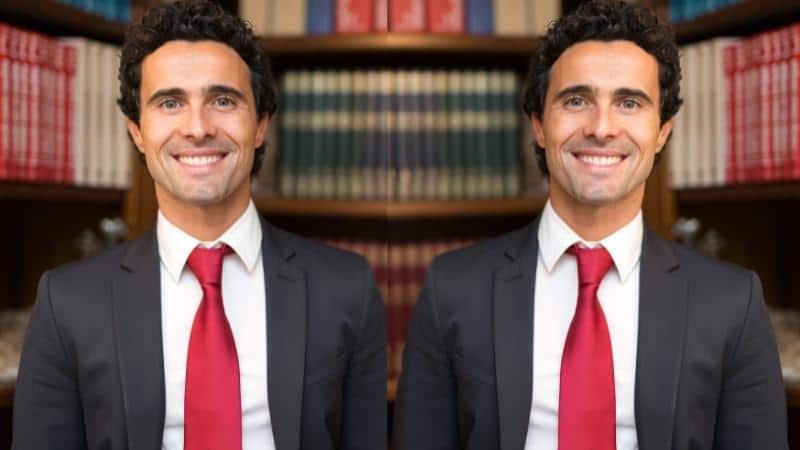Some people believe that law school is a rip-off that will end up leaving you in huge amounts of debt. The bar exam is a terror, two to three days of ritualized torment that will be regarded as unlawful abuse rather than an accurate evaluation of who is qualified to practice law. These are mostly those who become engaged in the impersonation of a lawyer.
Lawyers, like many other professionals, must obtain a license before practicing law in any state. While the conditions for acquiring a license vary significantly from state to state, all states declare it unlawful to practice law without having a license. And all states possess different regulations for different types of unlawful offenses.
A major fraud is committed when someone sets up an office, promotes it, puts fake degrees on the walls, and represents clients in court. The repercussions will be far more grave than simply signing a paper with the term “esquire.” Both are, however, deliberate misrepresentations or falsehoods.
There are a variety of ways to impersonate a lawyer. we must understand the many types of lawyer impersonation.

Activities considered as impersonation of lawyer
Every state has its own set of rules for the practice of law. Although these definitions differ somewhat, they all refer to the same sorts of activities.
- Making money as a lawyer: Practicing law entails presenting oneself to the public as a lawyer or someone authorized to work as a lawyer. You can’t rent a wall and put up a sign that says it’s a law firm or legal office except if you’re a certified lawyer, for example.
- Representing others: Only a lawyer can attend court or in other judicial procedures on behalf of another person, with a few exceptions. Official adjudication or mediation sessions, and also regulatory or administrative processes, fall under this category. Negotiating on behalf of someone else is also unlawful if the negotiations entail legal rights or duties.
- Writing papers on someone else’s behalf: The illegal practice of law also includes deciding what legal papers a person should make, aiding others in generating such documents, and drafting them on another person’s behalf. Non-attorney document preparation services are permitted in several states, however, just a few states recognize them.
- Legal advice: Only lawyers can provide professional advice to others concerning their legal rights, whatever they have to do to safeguard their rights and other legal issues. That doesn’t make it unlawful to talk to people about the law or to provide information or advise n what they must do. Under the appearance of being a lawyer or someone versed in the law, the illegal practice of law includes offering information on what steps to take or giving counsel to someone that is especially suited to a person’s unique circumstance.
It’s never a wise decision to pretend to be a lawyer, but it’s succeeded for some people. Although the legal industry is self-regulatory, there have been plenty of ambitious pseudo-lawyers who act outside of the regulations. And they do it often directly next to our eyes.
The media organization Al Jazeera was represented by an unregistered lawyer working as General Counsel, according to The New York Times the year before. David W. Harleton was not licensed to work as a lawyer in any jurisdiction in the United States, yet he was working on critical matters for a prominent organization, taking the phrase “fake it till you make it” to new heights.
Obviously, no one would ever advise faking to be a lawyer. It is unlawful to practice law without a license, and most of those who do so find themselves in prison, leaving their deceived “clients” out there in the cold.
Take, for example of Howard Seidler. Seidler used to meet clients at the Brooklyn Bar Association’s law library, demanding huge amounts of money to facilitate immigrants in getting legal papers. Seidler promoted himself as an esquire, Ph.D., and J.D. on his business cards, but he was not a lawyer, simply a scam artist.
Seidler was recently condemned to two to four years in jail for fraud involving immigration aid services, making him the first individual to be convicted under the New York legislation. He may not, however, be the last. Unlicensed fake lawyers, immigration advisors, and “notarios” rely on immigrant communities that are ignorant of the legal requirements in the United States.
In the year 2017, Salem— A Lawrence man accused of masquerading a lawyer and taking a lot of money from people who sought legal aid told the court he could not really find a lawyer to assist him.
Statewide prosecutors charged Homayoun Maali, who routinely attends Lawrence City Council sessions, on five charges of theft using false pretense on March 28.
Maali was charged and discharged on personal recognizance in Salem Superior Court in early May. Despite being accused of “unlicensed practice of law” and “commitments to refer cases to professional lawyers,” he did not get a lawyer during his arraignment, according to court records.
According to court documents, Maali was involved in a scheme in where he provided misleading statements regarding his capabilities to serve victims with legal issues, particularly bankruptcy and immigration issues” over the previous four years. He used this to persuade his victims to make payments for overdue filing fees, unpaid mortgage payments, and services that the defendant had no right to offer. Despite the fact that the defendant is not a licensed lawyer, he intentionally offered to perform these legal services.
He solicited $4,000 from a victim who required assistance with an immigration problem in December 2017, knowing perfectly well that he would never submit any application, much alone one demanding fees, on the victim’s behalf. He made that fake commitment in order to persuade the victim to hand over the money, which he meant to keep for himself.
Maali said he could protect two victims’ homes from bankruptcy for $5,000, which he claimed he would send to a competent lawyer. According to the prosecution, he instead “taken the money for himself.” He stole $2,500 from a father whose grandchild needed assistance with a criminal issue in a similar scheme. According to the facts, he retained the money yet again.
Maali was arrested 18 months after a superior federal judge issued an injunction barring him from practicing law or getting money for assisting clients with loan modification applications. Later he fled from Iran to the USA, got citizenship, and got rid of penalties.

Penalties for impersonating a lawyer
Unauthorized practice of law is punishable as a misdemeanor or a crime. The severity of the offense is defined by the laws of the state where the event happens, as well as some states allow for felony or criminal charges based on the circumstances. Anyone accused of practicing law without a license might face a variety of penalties.
- Incarceration: You might risk a jail or prison term if you’re convicted of a felony of unlicensed practice of law. A misdemeanor charge can end in a year in county jail, whereas felony convictions can result in a year or more in prison, however, in certain cases, 5 years or more is conceivable
- Fines: For the illegal practice of law, fines are a regular penalty. Fines for misdemeanors are typical $1,000 or less, whereas felony fines can be $5,000 more for each offense.
- Probation: If you’ve been convicted of practicing law without a license, you may be sentenced to probation. You must follow certain rules while on probation, including paying the fines, submitting to a probation officer, obtaining and keeping a job, and not incurring any other offenses.
- Restitution: If you’re found guilty of engaging in the illegal practice of law and asked the victim a charge for your assistance, the court will compel you to pay restitution. Restitution is a distinct punishment from any penalties imposed by the court that should be delivered to the victims to make up for any losses they have incurred. As part of a probation term, you must also pay reparation.
Yes, most certainly, however, context is important. If you firmly suggest that you are a lawyer to persuade a store clerk to serve you, you won’t go to jail (and it’s unlikely to help anyway, given how little people care about lawyers). However, if you work as a lawyer without a license and deceive clients, you will be subject to civil and criminal penalties. Anyone practicing law without a license and impersonating a lawyer is against the law.
So it’s not suggested to impersonate a lawyer in any critical circumstances. If you ever decide to do so, deeply ponder over the severe consequences of the penalties explained above. On the other hand, If clients have any concerns, check with the state bar organization to verify if your lawyer is registered. You verify this because the license of a lawyer is public information.
